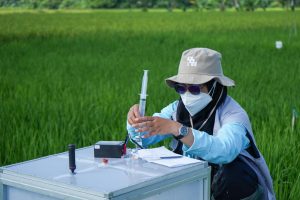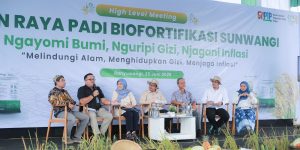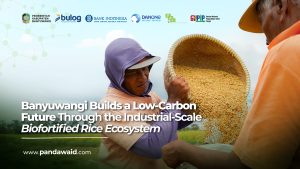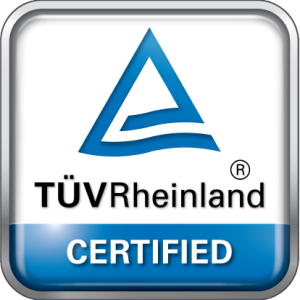Are you a coffee person who wakes up and must have a cup of coffee every day? Or are you a coffee connoisseur who enjoys experimenting with different types of coffee? Well, we have some not-so-good news to share. In year 2050, it will be more difficult for coffee lovers around the world, including us, to get our hands on a good quality cup of coffee. Surprised or not-so-surprised?
About half of the world’s coffee-growing land could become unproductive by 2050, according to a study published in the journal Climate Change. Even the journal Proceedings of the National Academy of Sciences supports this argument, claiming that the number could reach 88% in Latin America.
PT Terra Agro Yields team discovered that this problem has arisen as a result of global climate change. The increased temperature degrades the quality and quantity of coffee plants grown by farmers.
Climate change results in an increase in the possibility of pests, diseases and weeds appearing, one of which is la roya disease or stem rust. In 2012-2013, the disease slashed Central America’s coffee production by approximately 15%. Since most coffee plants are exposed to stem rust disease, the price of a pound of coffee (454 grams) for consumers in the U.S. jumped about 33% between 2011 and 2013.
Weed control will be more difficult with unpredictable temperatures and varying water availability, especially during the hotter and rainier seasons when weeds will grow faster. There are even some weeds that are difficult to control due to their massive growth.
The situation becomes even more complicated when we consider that pesticide resistance can be accelerated through increased reliance on pesticides in conjunction with a favorable environment for plant pest reproduction.
Property of PT Terra Agro Yields
Latest Blog :
- PT Terra Agro Yields Present RiceVitalize: A Bold Step Towards Healthier Food and Regenerative Farming
- Banyuwangi Launches the First Industrial-Scale Biofortified Rice Ecosystem in Indonesia: A Strategy to Strengthen Food Security and Control Inflation
- Banyuwangi Builds a Low-Carbon Future Through the Industrial-Scale Biofortified Rice Ecosystem
Therefore, the use of pesticides will increase, making the risk of pesticide residues more real. Pesticide residues on coffee plants can be settled on the soil and also on the coffee bean itself, so they can harm consumers. No wonder the habit of drinking coffee in the morning is portrayed as “a cup of pesticides to start the day.”
This is because almost 90% of the coffee sold on the market is still treated with pesticides in inappropriate doses. Continuous consumption of coffee with high levels of pesticide residues can increase health risks such as cancer, reproductive disorders and other health effects.
Pesticides used to eliminate harmful organisms on coffee plants leave residues that take a long time to decompose. Pesticide residues on coffee present a significant risk to the environment.
Pesticide residues in soil, water and air also have an impact on non-target organisms, from beneficial soil microorganisms to insects, plants, fish and birds.
Given the enormous impact of pesticide residues, the World Health Organization (WHO), together with the Food and Agriculture Organization (FAO), has established safe intake limits to ensure that the amount of pesticide residues present in food is safe for consumption.
The Maximum Residue Level (MRL) is the highest level of pesticide residues that is legally tolerated in food or feed when pesticides are properly applied (Good Agricultural Practice).
World Coffee Research says that in 2050, deep coffee lovers around the world, including us in Indonesia, will be more and more. The fact that we will have some quality coffee will be a trigger for coffee prices to increase in the market and become a luxury item to consume.
This is confirmed by the statement of Dr. Tim Schilling, founder of World Coffee Research, who stated that in the future, we will accept paying $10 – $15 per cup for low quality coffee.
Several solutions are required to solve the problem in order to obtain high-quality coffee while not exceeding the maximum residue limits. The #fightforMRL movement is one of the campaigns to reduce pesticide residues in coffee plants. This movement was formed to reduce pesticides residues by using pesticide reductants, including both herbicide and insecticide reductants.
What else can we do to protect the environment while still enjoying high-quality, healthy, and tasty coffee?
Source :
- https://time.com/5318245/coffee-industry-climate-change/
- https://www.sare.org/publications/climate-risk-management-and-resilience-on-farms-and-ranches/understanding-climate-risk/weeds-insects-and-diseases/
- https://www.thewellnessway.com/coffee-and-pesticides/
- https://www.ncbi.nlm.nih.gov/pmc/articles/PMC2984095/
- https://ec.europa.eu/food/plants/pesticides/maximum-residue-levels_en
- https://www.gearpatrol.com/home/a607342/race-to-save-coffee/
About PT Terra Agro Yields
PT Terra Agro Yields is the first life science based company from Indonesia and currently the only one company that has innovation in the development of pesticide reduction products (pesticides reductant). Starting from this innovation, PT Terra Agro Yields is committed to helping agricultural businesses to create an agricultural practices that is sustainable, environmentally friendly, safe for users, and also cost-efficiency.
For more information visit : PT Terra Agro Yields








